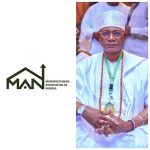By Newsshelve Correspondent.
In a bid to tap into the lucrative global market valued at over $1 trillion, the Standards Organisation of Nigeria (SON) is urging stakeholders in the leather and textile sector to adhere to international standards.
This call to action is part of SON’s strategic efforts to promote standardization and quality assurance in the industry.
According to Ifeanyi Chukwunonso Okeke, Director General/Chief Executive Officer of SON, the organization has been working closely with manufacturers, suppliers, and regulatory bodies to ensure that Nigerian leather and textile products meet international standards.
This collaboration has led to a significant improvement in the quality of leather products in Nigeria, with local manufacturers now producing high-quality leather goods that can compete favorably with international brands.
The benefits of standardization in the leather and textile sector are numerous. With the right standards and quality assurance in place, market analysts believe that Nigerian manufacturers can produce high-quality products that can compete with the best in the world.
This, in turn, can lead to an increase in exports, job creation, and revenue generation for the government.
Stakeholders in the leather and shoe industry have called on the federal government to pay attention to the concerns of local industries, particularly the leather and shoe sector, and address their concerns.
At a recent town hall meeting, Obasi Uba, Chairman of the Manufacturers Association of Nigeria (MAN) Abia/Owerri Chapter, emphasized the importance of supporting local industries and promoting economic growth from the grassroots level.
He urged the government to provide the necessary support and standards to enable the industry to compete favorably in the global market.
To achieve the goal of making Nigeria a major player in the global leather industry, SON has put in place a policy that ensures that Micro, Small, and Medium Enterprises (MSMEs) and other relevant stakeholders are involved in the standards development process.
This policy is expected to create an enabling environment for the sector to be part of the standardization process, ensuring that products meet global standards.
With the right standards and quality assurance in place, Nigerian manufacturers can produce high-quality products that can compete with the best in the world.
As the sector continues to grow and develop, it is expected to create thousands of jobs, generate significant revenue for the government, and contribute to the country’s economic growth and development.









Comment here